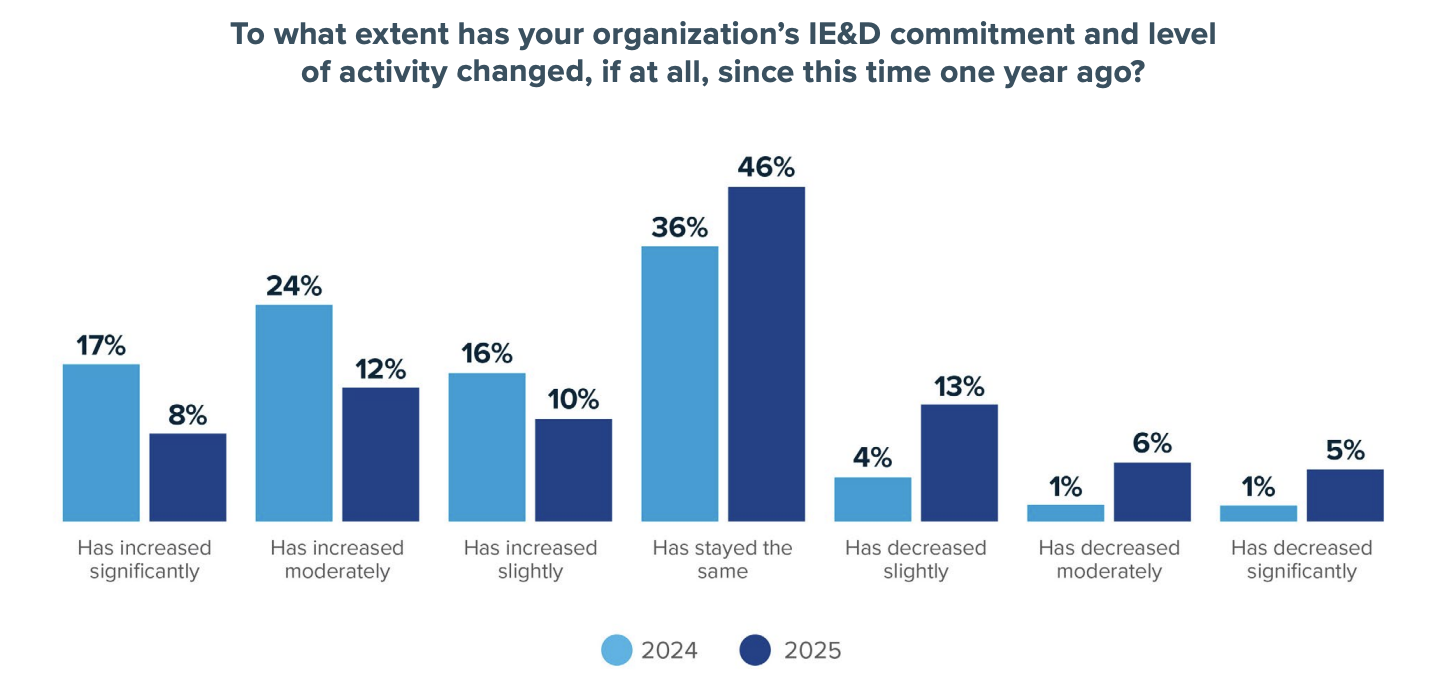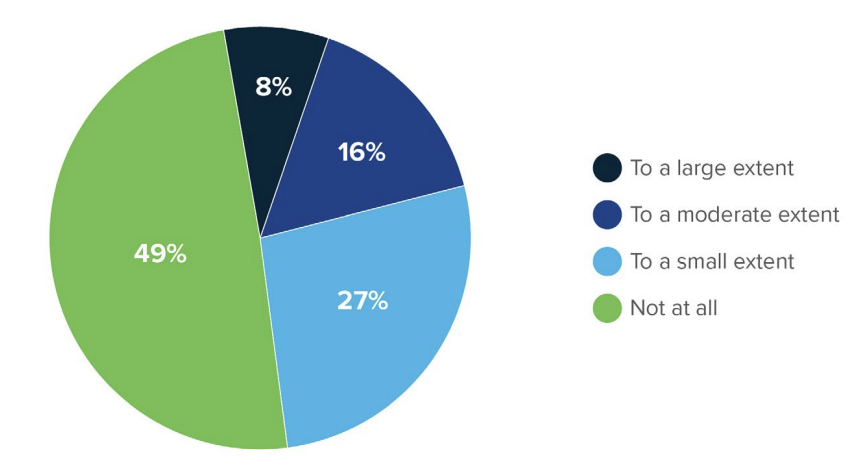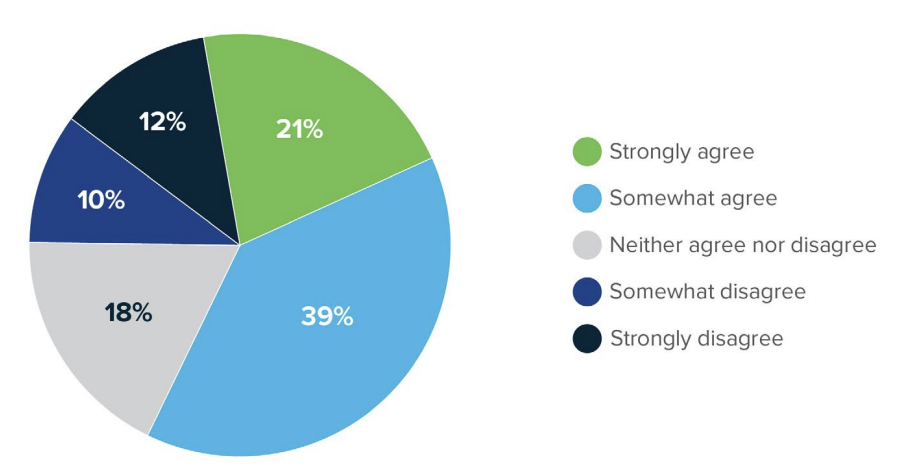
'By conducting audits, businesses can proactively examine their IE&D practices to guide compliance with antidiscrimination laws'

A recent survey has found that 24% of organisations in the U.S. have decreased their inclusion, equity, and diversity (IE&D) commitment and level of activity since a year ago.
Their top reason for reduced commitment to such measures is concerns about legal liability and litigation, including "reverse discrimination" lawsuits (42%).
Others cited:

Employers planning to roll back or eliminate IE&D initiatives said the first thing to go would be IE&D-related language on their website, proxy statements, or outward-facing communications (61%), found Littler. Others said:
Kate Mrkonich Wilson, Littler shareholder and member of the firm's IE&D Consulting Practice, said it's more important than ever for private sector firms to carefully review their IE&D practices for potential vulnerabilities.
"By conducting such audits under attorney-client privilege, businesses can proactively examine their IE&D practices to guide compliance with longstanding antidiscrimination laws," Wilson said.
Findings from Littler revealed that 49% of employers are not considering new or further rollbacks to their IE&D programmes and policies following US President Donald Trump's executive orders targeting these policies in federal workplaces.
On the other hand, 51% of employers believe that Trump's orders have an impact on whether to roll back IE&D plans to a certain extent.

Trump in January ordered the shutdown of IE&D programmes across federal agencies, as well as placed on leave federal employees who were working on them.
The US president also ordered the federal government to scrutinise IE&D programmes in the private sector, while threatening to eliminate the "illegal" ones.
"The first weeks of the new administration have forced business leaders to reckon with new and complex considerations as they weigh how — or even whether — to continue to pursue core aspects of their IE&D programming," said Jeanine Conley Daves, Littler shareholder and member of the firm's IE&D Consulting Practice, in a statement.
In the wake of these, 60% of employers said they are still waiting for further developments from the administration, including enforcement plans and other details, before implementing changes.

"Despite the increased scrutiny, many companies seem to be taking a measured approach, rather than rushing to end or scale back IE&D efforts," Daves said.
"Leaders are looking for ways to balance legal risks with the value such programmes provide to their workforces and company cultures."
There are also employers withdrawing on IE&D following a Supreme Court ruling that declared unconstitutional and unlawful Harvard College's inclusion of race as a factor in college admission policies.